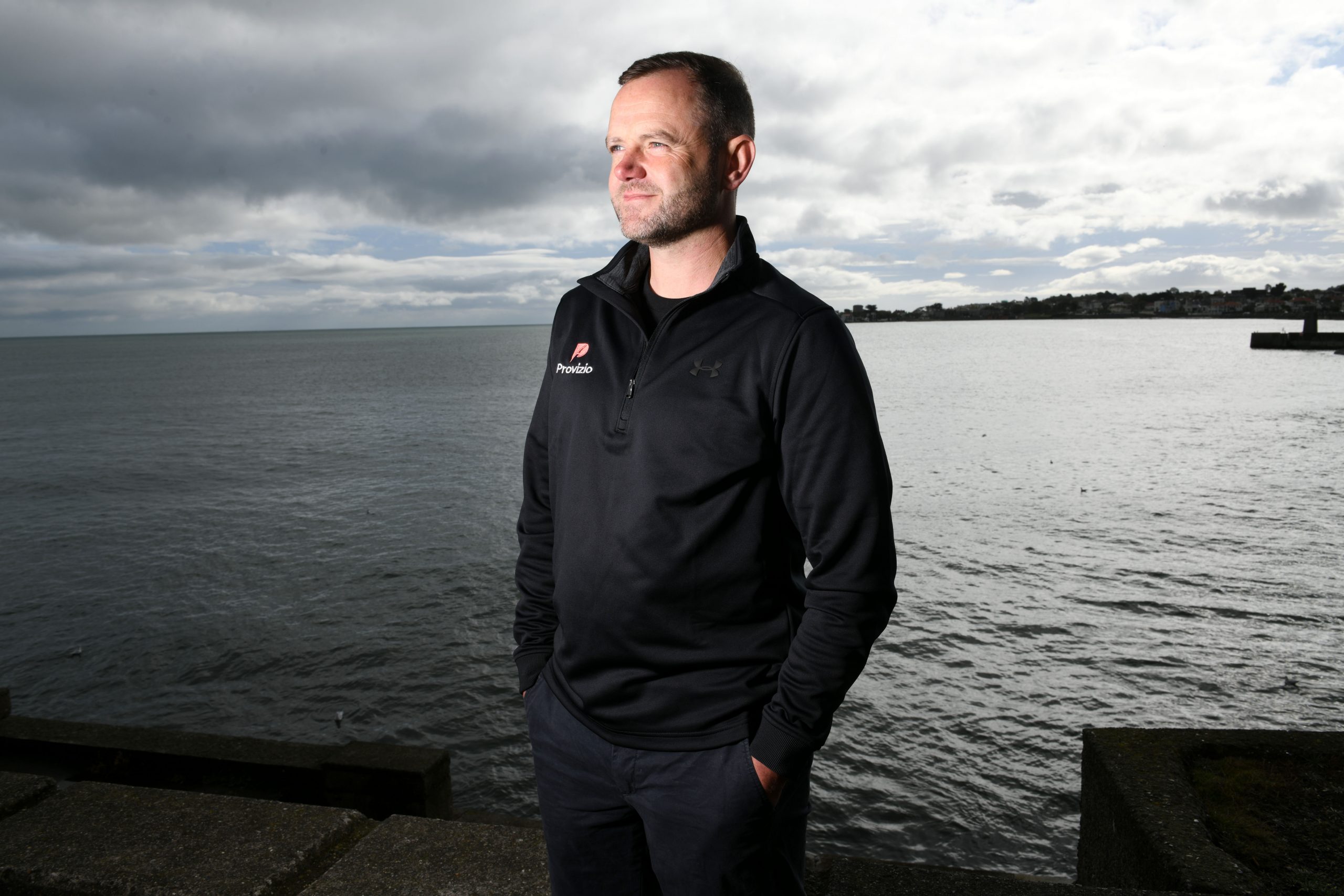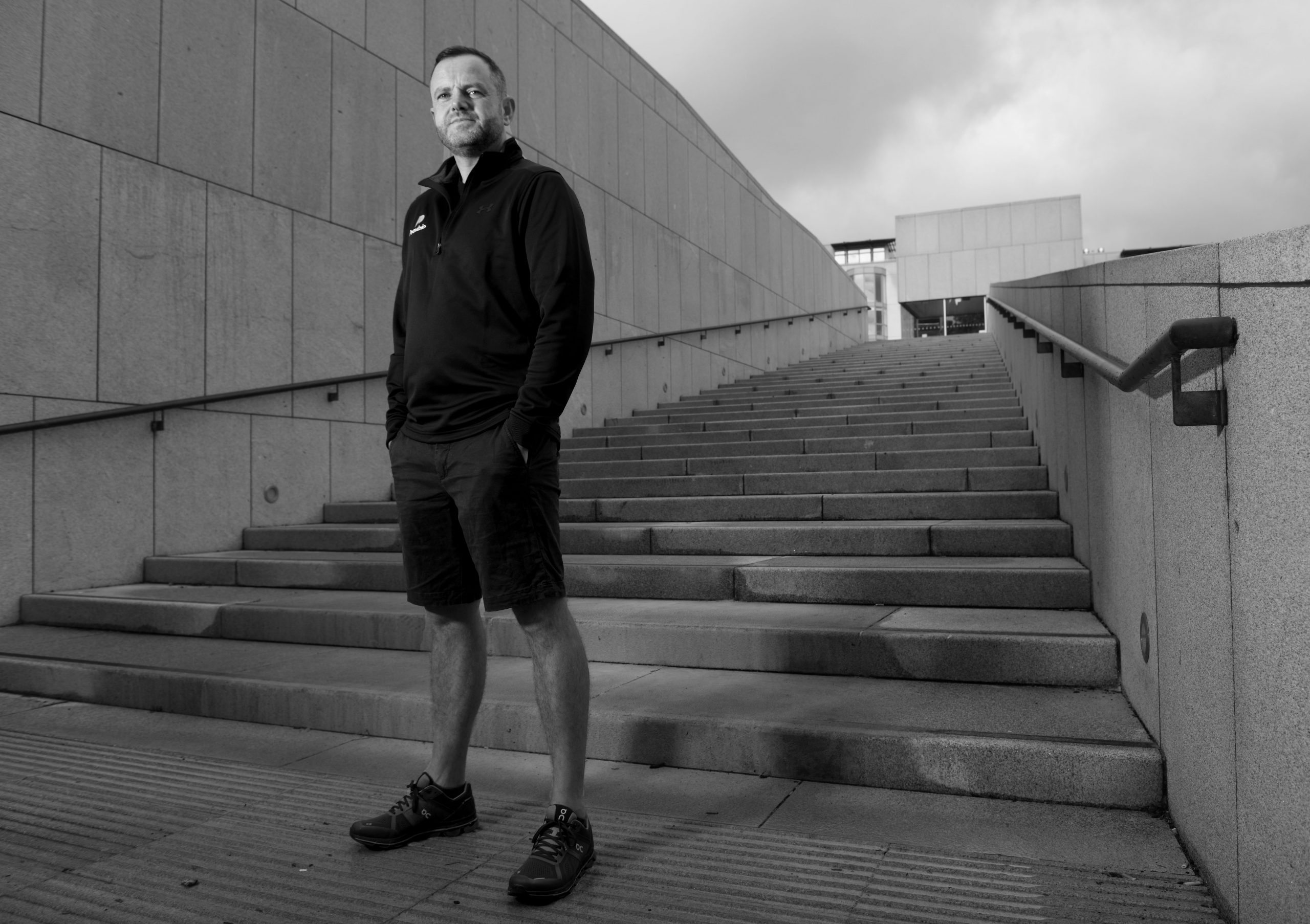A Land Rover Defender with an array of sensors on its roof looms behind Barry Lunn, the founder of the Irish start-up Provizio.
Lunn is in Provizio’s headquarters in the Future Mobility Campus in Limerick when he logs in on our video call. He has his camera angled slightly; I can see a crash-test dummy in one corner but the camera is facing away from the other side of the sunlit garage that he is sitting inside.
“There is a bunch of other stuff over there that I’m not allowed to talk to you about,” he laughs.
Lunn’s company is at the forefront of some serious technological advancements. Provizio is working on 5D radar sensors that use software-defined antennas to beat the resolution of next-generation existing sensors by more than thirty times with a range that is three times greater.
It might sound complex, but it could be a game-changer when it comes to road safety.
It means that a vehicle could avoid accidents by seeing around – and through – obstacles. This allows the driver to be alerted to potential issues sooner, allowing them to try corrective action to avoid the obstacles.
Investors have backed the concept. In November 2020, Provizio raise $6.2 million in a funding round led by ACT Venture Capital and backed by angel investors such as Seán Mitchell and David Moloney, founders of Movidius, the Irish chipmaker that was acquired by Intel in a $400 million deal in 2016.
Lunn is a serial entrepreneur who previously sold his radar technology company Arralis in a $50 million deal in 2017. He is also the winner of the KPMG Global Tech Innovator (GTI) competition in Ireland, and he is due to go to Lisbon next month to compete against start-ups from 22 other countries. Lunn is also attending Web Summit.
Breakthroughs, demonstrations, sales
Lunn is flat out since his funding round closed in late 2020. “We went back into the cave a little bit after that,” Lunn said. “We wanted to be the guys who actually got our product working as opposed to the traditional thing of getting it a little bit working and then hoping your customers are patient enough to wait until it works properly.”
“We have really pushed the platform. Our entire approach – while it is layered from sensors to software to application of AI – we’ve been really concentrating on proving it all out,” Lunn said. According to Lunn, Provizio had a significant milestone in April. “We cracked doing all our back-end perception on a GPU (electronic circuit) and as far as I am aware we are the first to do that,” Lunn said.
“It allows us now to do all these live demos. We are not showing people theoretically what we can do. We are jumping in the car and going for a drive to show them.
“Nothing beats seeing things operating. We have gotten good traction as a result. It opens up a tonne of markets for us. There is the traditional market: cars. But you have got to partner and go through the whole process. Our thing is if we build this as a plug-and-play perception system, we can unlock many other markets.”
“We have some big announcements coming up. We are working in agriculture now. We are working with micro-mobility companies, mining companies – along with the automotive and trucking side of things.”
Lunn said Provizio had recently used its product to help farmers harvest crops.
“If you think about it out harvesting corn. The stalks are extremely dense and tall, so the driver is essentially driving part blind. What if there was a sensor that could see ahead? Obviously to spot people but also obstructions like rocks or bits of metal that can wreak havoc. There are a tonne of interesting things to solve in agriculture which will make it more efficient and safer,” he said.
“I’ll be representing not just Provizio but also Ireland.”
Barry Lunn
What about scooters and electric bikes? “We have some announcements coming soon on that side,” Lunn said. “We can now do this at a price point that makes sense for those types of applications because it is all well and good having your SUVs and cars kitted out with the best technology for safety, but we want to protect all users. If you are solving for safety, you should solve for scooters and bikes too, so we are putting in a big effort there.”
Is Provizio generating sales? “We are no longer pre-revenue. I was enjoying burning all that cash,” Lunn laughs.
“We have kicked off our first project but to be honest we’ve resisted revenue until recently. I know that sounds weird but traditional big companies are really good at keeping start-ups busy.”
Lunn said Provizio wanted to work on developing its own projects and not get sucked into doing projects for bigger companies.
“We are definitely not overly revenue focused but we do use revenue as a way of deciding whether someone is serious,” Lunn said. “If you want to do something with us, pay us at some level.
“But we don’t want to chase revenue by doing every R&D project known to man. We don’t want to end up a design house. We are a platform company building our own technology. That is really important for us.”
Funding, fundamentals, and focus

Barry Lunn said the funding environment for all start-ups globally was harder this year. “Valuations have dropped,” he said. “But I’m ok with that. We could have done a bigger funding round last year with the hype machine, but we resisted that.
“I am big into business fundamentals – maybe that is because I am getting older,” Lunn said. “I do believe we have to create value first and then ask investors to add money.
“I am not comfortable in hype-cycle bubbly stuff. But the problem is you don’t want to raise a lot of money when valuations are down like they are now.
“What we are doing is looking at expanding our existing round. There is a tonne of people who missed our seed round as we closed it so quickly. So, we are going to take in a little more money this year, and that is already in train. There won’t be any announcement, but it will just be us extending our runaway even further and making sure we don’t have to slow down.”
In January, Lunn said Provizio plans to showcase its innovative products at CES in Las Vegas. Organisers of the event are predicting more than 100,000 attendees making it the biggest tech event since the pandemic began.
“It is pretty exciting and expensive,” Lunn said, adding that Provizio will be bringing one of its cars to the event in order to be able to demonstrate on the road.
“You think engineering is expensive until you do marketing. But this is the next phase for us. We do CES and then maybe we will raise a bit more again next year.”
Lisbon calling
Lunn said he was excited about attending Lisbon next month with KPMG. GTI is the only competition Provizio has ever entered, he said. “It was intense, a real Dragon’s Den feel. The questions from the judges were really good. It was our first real foray into testing in a non-technical environment,” Lunn said.
The jury quizzing Lunn were Atlantic Bridge managing partner Elaine Coughlan, eShopWorld founder Tommy Kelly, Microsoft Ireland general manager Anne Sheehan, and Chris McClelland, founding partner at Broadstone. The final member of the judging panel was KPMG managing partner Seamus Hand.
“I am super comfortable answering technical questions, but this was testing the waters in a different way as they had some really insightful questions,” Lunn said. “It was cool to come back with a prize as I was able to tell my team people are recognising what we are doing. That was a real buzz. I am really looking forward to going to Portugal. I’ll be representing not just Provizio but also Ireland. I’m competitive so now I want to go and hopefully win it.”
The Currency is a supporter of KPMG in Ireland’s Global Tech Innovator competition.


